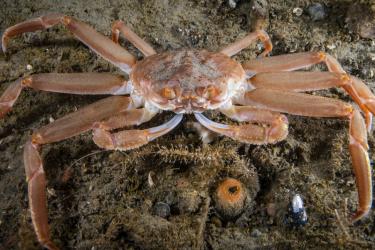Whales are beautiful and magnificent creatures that inspire awe in all of us. NOAA Fisheries and partners are celebrating Whale Week 2017—there is a lot to learn about the new ways our scientists are studying whales, what they are learning, and how we can all pitch in to help protect whales.
2016 was a banner year for whale conservation at NOAA Fisheries. Decades of international conservation efforts resulted in a reclassification of humpback whale populations, with nine of 14 newly identified populations coming off the endangered species list. The release of the Ocean Noise Strategy Roadmap will help guide the agency to comprehensively manage ocean noise impacts on marine life, including whales, in the next decade. A new Recovery Plan for Cook Inlet beluga whales serves as a roadmap for how NOAA Fisheries and partners address threats to this Species in the Spotlight and guide recovery actions to prevent extinction.
But there’s still more to be done to help whales thrive in oceans around the world. Fisheries’ Species in the Spotlight initiative is focusing efforts on two whale species that need the most help—Cook Inlet belugas and Southern Resident killer whales. We continue to work with dedicated partners to reduce threats like entanglement, noise, and ship strikes. These threats continue to be a focus of study for NOAA and those working to recover whale populations.
As we celebrate Whale Week 2017, NOAA Fisheries looks forward to advancing scientific research, whale recovery and conservation. One of the Agency’s primary goals is using cutting-edge research techniques to advance our understanding of where whales live and their habitat. Scientific studies will also focus on how changes in climate will affect whales and their environments.
As we continue to research whale populations and behavior, you can also do your part to view whales responsibly and to report to our partners when you see whales in distress. Together there is much to celebrate about these marvelous ocean animals. We hope you’ll join us as we dive into #WhaleWeek2017!

Cisco Werner
Director, Scientific Programs and Chief Science Advisor


